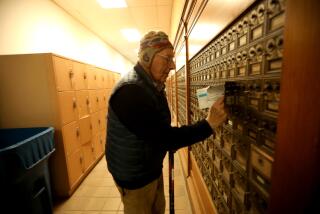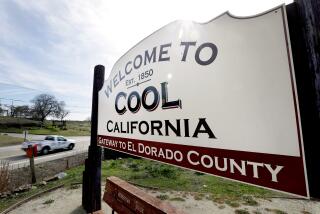Angry New Englanders Find a Way to Get Out of Town
- Share via
SHERMAN, Me. — Frustrated by rising property taxes, townspeople in Sherman have launched a campaign that could lead to dissolution of the small town, giving up its name and local control and reverting to state jurisdiction.
“We don’t have any alternative. I don’t see any other way,” said Paul O’Roak, who, with his wife, Deborah, are the leaders of the effort.
In the last six years, seven communities have elected to deorganize.
If the drive in Sherman succeeds, state officials estimate, tax bills could drop by as much as two-thirds, perhaps without an appreciable loss in services. The biggest losses would be in local control and perhaps even more in town pride.
When an incorporated town or plantation--a community with very low population and large area--chooses to deorganize, its residents relinquish the powers of local government and the community reverts to state control. The highest cost--education--is picked up by the state; other services are carried out by the county or by outside contractors.
Simply Too Small
Most of the recently deorganized communities concluded that they were simply too small for self-government. The population of six of them--including two named Township 21 and Township 14--totaled little more than 300.
But Benedicta, where deorganization took effect last spring, had a population of 225 and its motives were financial--to deal with a projected huge jump in property taxes resulting from a need to comply with state educational requirements.
Sherman is larger still, with a population of more than 1,000, and its services include a small library and a gymnasium where recreation programs are offered.
The deorganization effort in Sherman got its start after tax bills were mailed in fall. The tax rate jumped to around $26 per $1,000 of valuation.
To most homeowners, this meant an additional tax bite of $200 to $300, a considerable sum in a town where paychecks are small and there is a disproportionate share of old people trying to get by on fixed incomes.
Little to Tax
There is little non-residential property to tax beyond a small wooden-box factory and a couple of small stores.
At a meeting last week, townspeople heard from nearly a dozen state and county officials who spelled out what deorganization would mean.
Officials said there would be no guarantee that the state-imposed tax rate for unorganized territories would not increase, especially if other relatively large towns hit upon dissolution as a solution to their tax woes.
“This can snowball and keep going, said James A. McBreairty, a former state senator from Aroostook. “If you deorganize, and your neighboring town says we’ll deorganize, you’ll be back where you were in terms of the tax rate with nothing to show for it.”
Townspeople also were warned that deorganization meant loss of local control: complaints about potholed roads or questions about a child’s progress in school would have to be directed to faraway county and state officials instead of the selectman or school board member across the street.
More to Read
Sign up for Essential California
The most important California stories and recommendations in your inbox every morning.
You may occasionally receive promotional content from the Los Angeles Times.













